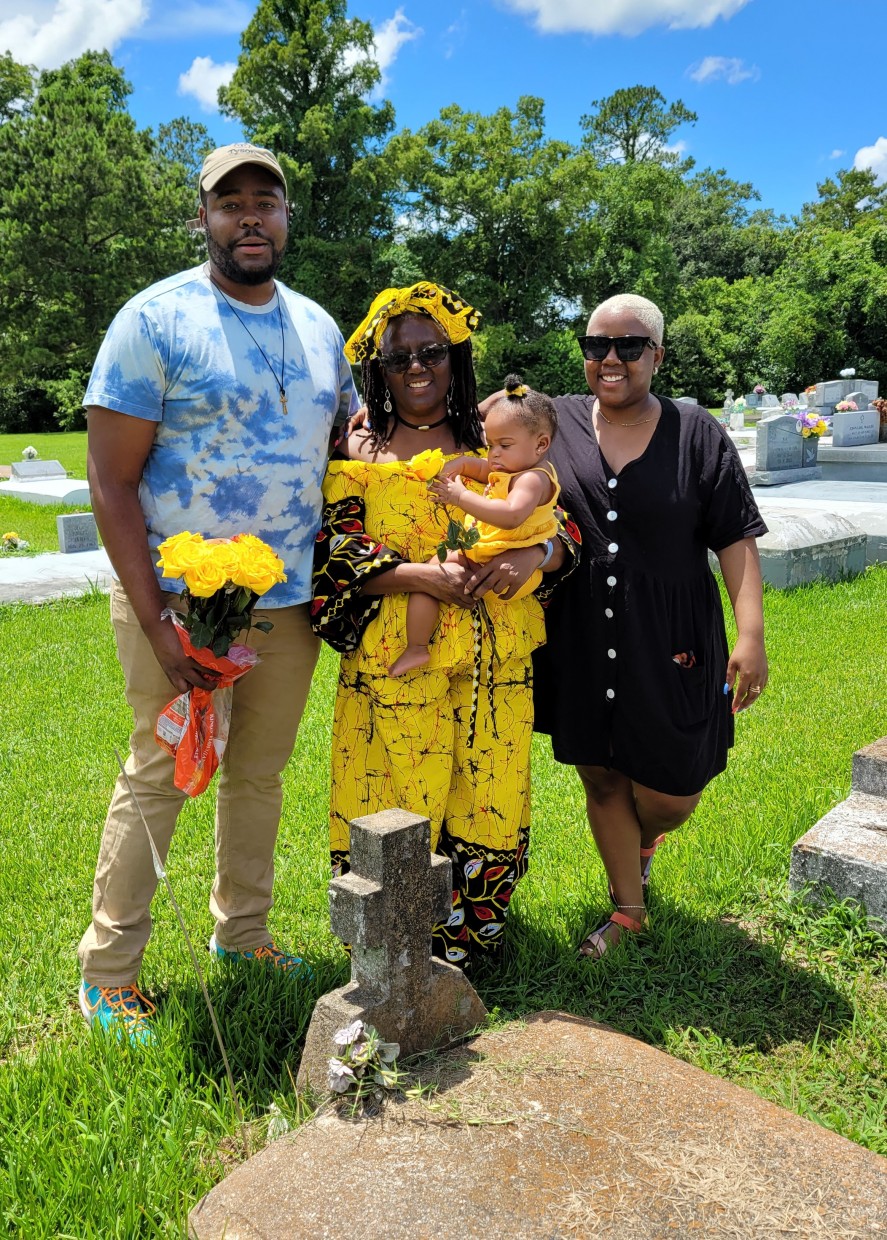Building a Legacy Through the Descendants Truth & Reconciliation Foundation

Jackson Hawkins was only three years old in 1838 when he, an enslaved toddler, was sold by the Jesuits in Maryland to a plantation owner in Louisiana in order to prop up Georgetown University’s finances. Sometimes I imagine what he must have been through, surviving in slavery in the South as a young child—with the mosquitos, the heat, the snakes, the alligators and the grass that cuts like a knife.
It’s thanks to Jackson Hawkins that I am here today, because he was my great-great grandfather.
I learned these facts about my ancestry on a Sunday. I went through a range of emotions—surprise at learning so much detail about my own family from the pages of The New York Times, heartbreak at imagining the torture my family members had endured their entire lives, joy at discovering so many new relatives around the world, and regret at all the missed opportunities to learn more when great aunts and uncles were still alive.
The one thing I did not feel was anger. After losing so many family members to disease and feeling the march of time myself, the discovery of a bigger family—tied together by a past that we refused to let break us—was a gift. Here was a group of people who understood my roots because they had grown from the same soil.
An even bigger gift, I came to realize, was the gift of choice. While Jackson Hawkins and those sold like property in 1838 had little choice of what legacy they would leave, I had the ability to decide so much in my life, including what I would do with this new knowledge. I decided to use it for the betterment of my fellow man.
The day I learned I was a descendant of Jesuit enslavement, I started a journal. I still have it, and on the first page it says, “Reconciliation, empowerment, holistic change.” The following pages contain more ideas: career development for descendants, financial literacy workshops, college readiness funding, therapy for descendants to heal, passports—so many programs that could help change the lives of descendants of Jesuit enslavement. That is why I know the Descendants Truth & Reconciliation Foundation is the right path forward: It’s about investing in programs that will help uplift future generations with opportunities that our ancestors never had and cutting down the racism that held us all back.
Jackson grew up in slavery, and my parents grew up in the segregated South. I grew up in a world rife with racism. I remember sitting in church as a young child and noticing that all the Black members of the congregation sat on one side while the white members sat on the other. We might have sung songs about walking hand in hand, but when we were told to reach across the aisle and offer the sign of peace, no one reached across to our side.
So the decision about what to do with knowledge of my ancestry—what kind of legacy to leave—was really a question about what kind of world future generations will grow up in.
My granddaughter, Journee, was born in 2021. Race relations are troublesome but she already has more choices than I did. And through this work to create opportunities for descendants and heal the racism that created this pain in the first place, I want to make sure that when I depart this earth, my legacy will be leaving Journee a world in which people of all colors and creeds join hands in peace—and in which she has more choices than little Jackson Hawkins ever imagined possible.
